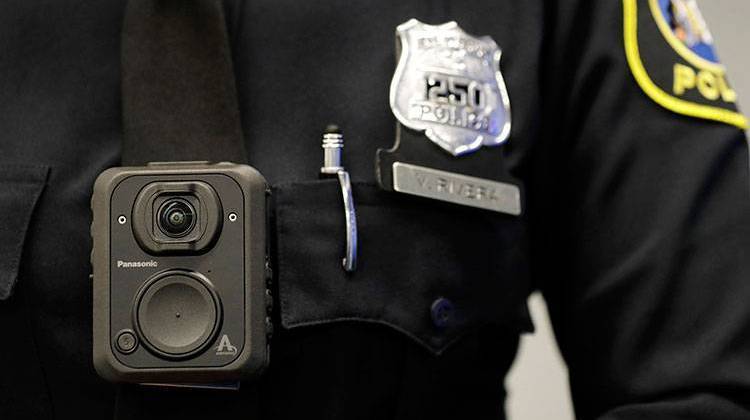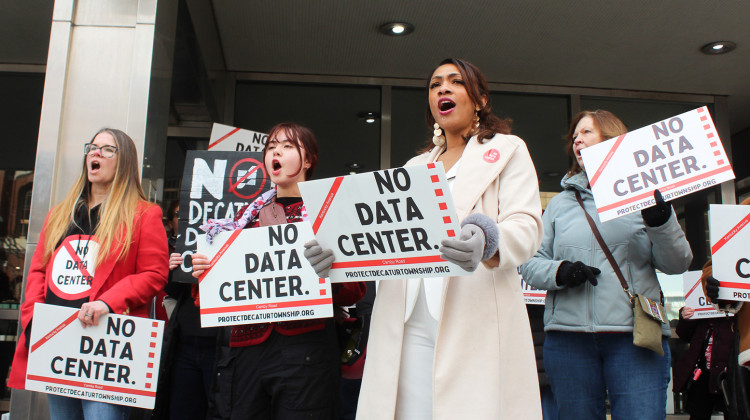
A representative from Seattle, where body cameras have been implemented, says it costs their department around $2.2 million to maintain – less than one percent of their budget.
AP Photo/Julio CortezA forum on police body cameras was held in Indianapolis Thursday night, as the city’s police department considers implementing the system to help build public trust.
IMPD Chief Bryan Roach participated in the panel discussion. He was joined by police leadership from cities that already use body cameras, and Cynthia Lum, a criminology professor at George Mason University.
Lum says there’s been a rapid adoption of police body cameras around the country, likely spurred by the series of high-profile, controversial police shootings in recent years.
She says she often hears from officers that it's a particularly difficult time for police. But Lum says she believes they're living in a golden age of policing, because important discussions about public trust are finally happening.
“People are beginning to have open conversations about things like disparity, about things like mental illness, both inside and outside of police departments," Lum says. "And it leads to an opening that allows us to rethink how we want policing to be. It doesn’t have to be the way it’s always been.”
Lum says most research on body cameras has been about officer behaviors and attitudes after its implementation.
She says officers with cameras often have less complaints made about them, but researchers don't know why. It could be a reduction in especially frivolous complaints, a real change in behavior, a shift from formal complaints to informal ones, or a combination of factors.
Lum also says the public generally supports the implementation of police body cameras. But she says there is often increased skepticism and opposition to them within minority groups.
Local resident Carleen Carter says she came to support the idea. But she says she learned that the management, cost and legal issues surrounding the archival of sensitive footage are more complicated than she thought.
“How are we gonna do this, and how’s it gonna work, and how’s it gonna protect the civilians, and how’s it gonna protect IMPD?" Carter says. "But I think they’re gonna bring it together. A lot of questions.”
Lum says high expectations for body cameras typically come from all sides, noting that they’re meant to protect the public from police, and also protect police from the public. She says she hopes more discourse happens about the undercurrent of distrust.
Nick Zajchowski is the strategic adviser for the Seattle Police Department, where they have implemented body cameras. He says there’s a complex, challenging balance to strike between transparency and privacy when using the cameras.
The Seattle department tries to strike that balance by redacting the identities of certain people before releasing footage, if they are protected under state law (the protection does not exist for suspects in the crime).
Zajchowski says it costs their department around $2.2 million to maintain the system – less than one percent of their budget.
“It’s worth it,” he says, to help rebuild public trust.
IMPD Chief Roach says Indianapolis is primarily focused on increasing the number of police officers on their force, which means budgeting for body cameras is likely years away.
 DONATE
DONATE









 Support WFYI. We can't do it without you.
Support WFYI. We can't do it without you.